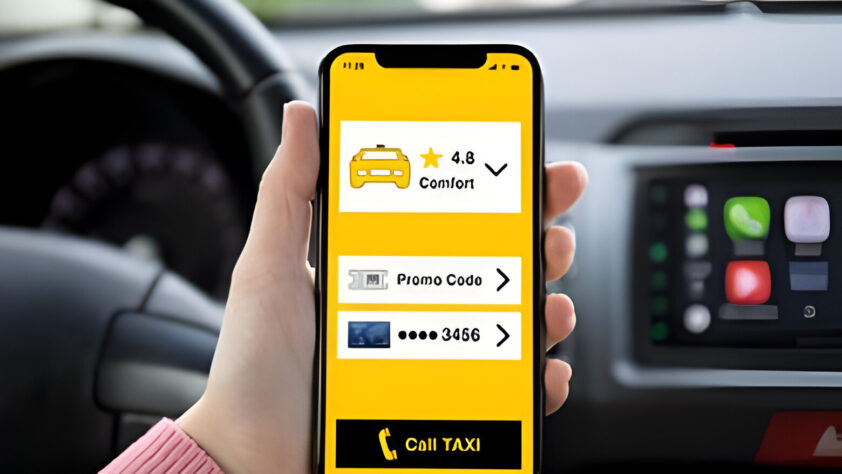Real estate apps are crucial for navigating property searches and transactions in today’s digital landscape. As more users turn to their smartphones for real estate solutions, having a well-designed mobile app can set your business apart. This guide explores the essential features, various types of real estate apps, current trends, and cost considerations to help you build a successful application.
Must-Have Features for a Real Estate Mobile App
To create an engaging real estate app, consider integrating the following features:
-
Integrated Calendar System
A calendar system is essential for scheduling property viewings and meetings. This feature helps users and agents manage appointments efficiently, avoiding conflicts and streamlining coordination. Ensure it integrates well with personal calendars for added convenience.
-
Direct Request Options
Facilitate accessible communication between users and real estate professionals with direct request options. This could include call buttons, request callbacks, live chat, or consultation request forms. The goal is to make it simple for users to get in touch and engage with agents.
-
Interactive Maps
Interactive maps enhance the property search experience by displaying detailed information about property locations and nearby amenities. They can also include data on transportation, local services, and neighborhood characteristics to help users make informed decisions.
-
Real-Time Notifications
Keep users updated with real-time notifications. Notify them about new listings, price changes, appointment reminders, and other essential updates. Personalize notifications based on user preferences to increase relevance and engagement.
-
Property Valuation Tools
Incorporate property valuation tools to assist users in estimating property values. Offer calculators for property sellers to assess their home’s worth and buyers to calculate mortgage payments, including interest rates and total costs.
-
User Onboarding Experience
Design a smooth onboarding experience to introduce new users to your app’s features and benefits. Provide a brief walkthrough and allow users to explore without immediately registering, offering a chance to engage with the app before committing.
-
Simplified Registration Process
Ensure a simplified registration process so users can easily sign up or log in. Provide options for using email or social media accounts and streamline the registration to make it quick and user-friendly.
-
Customized User Profiles
Develop customized user profiles for different roles, such as buyers, sellers, and agents. Each role should have access to relevant features, like agent property management or saved searches for buyers.
-
Comprehensive Listings
Comprehensive listings are the heart of your app. Include detailed information about properties, such as high-resolution images, thorough descriptions, pricing, and critical features. Offer sorting and filtering options to help users find properties that meet their needs.
-
Advanced Search and Filtering
Enhance the search and filtering capabilities to allow users to find properties based on specific criteria. Implement advanced filters such as location, price range, property type, and amenities to refine search results and improve user experience.
-
Detailed Property Pages
Create detailed property pages that provide in-depth information about each listing. Include photo galleries, descriptions, pricing details, and amenities. Features like virtual tours or interactive floor plans can enhance the user experience.
-
Saved Favorites
With the saved favorites feature, users can save and revisit properties they like. This allows users to easily compare options and streamline their decision-making process. Ensure the favorites list is accessible and organized for convenience.
Exploring Different Types of Real Estate Apps
Different types of real estate apps serve various functions within the industry. Understanding these can help you tailor your app to specific user needs:
-
Property Valuation Apps
These apps offer users tools to estimate a property’s value. They are helpful for sellers to understand their home’s market value and for buyers to evaluate potential purchases. Examples include Trulia and Zillow.
-
Customer Relationship Management (CRM) Apps
CRM apps are designed to manage interactions between real estate agencies and clients. They help track leads, manage client relationships, and handle inquiries efficiently. Examples include Contactually and Zendesk Sell.
-
Property Management Apps
Property management apps assist in managing various properties, including residential and commercial real estate. They help property managers handle bookings, maintenance requests, and tenant communications. Examples include Buildium and Tenant Cloud.
-
Enterprise Resource Planning (ERP) Apps
ERP apps provide tools for real estate companies to manage operations, including rate control and client communication. They help in data management and performance tracking. Examples include Buildium and ValueLink.
-
Real Estate Investment Apps
These apps help users make real estate investment decisions. They offer tools for calculating mortgage payments, evaluating property value, and exploring investment opportunities. Examples include Property Fixer and Realtor.com.
-
Rental Apps
Rental apps facilitate renting properties, whether for short-term stays or long-term leases. They focus on providing detailed property descriptions, including amenities and location information. Examples include Airbnb and Vrbo.
-
Buying and Selling Apps
Buying and selling apps streamline the process of purchasing and selling real estate. They offer features for searching listings, connecting with agents, and managing transactions. Examples include Redfin and Trulia.
Why Develop a Real Estate Mobile App?
Developing a real estate mobile app offers several advantages:
- Enhanced User Engagement: Mobile apps provide a convenient way for users to search for properties and engage with real estate services. With more smartphone users, a well-designed app can capture and retain their interest.
- Improved Viewing Experience: Technologies such as virtual reality (VR) and augmented reality (AR) enhance property viewing by offering immersive experiences. These technologies help users visualize properties more effectively and make informed decisions.
- Adoption of Advanced Technologies: Leveraging technologies like artificial intelligence (AI) and big data can improve app functionality and user experience. AI can offer personalized recommendations, while big data can help analyze user preferences and trends.
Monetization Strategies for Real Estate Apps
To generate revenue from your real estate app, consider these monetization approaches:
- Transaction Fees: Charge transaction fees, such as property purchases or agent services. Platforms like Airbnb and Redfin use this model.
- Advertising: Integrate advertisements for related services like mortgage lenders or home improvement businesses. Apps like Zillow and Trulia utilize this approach.
- Premium Features: Offer subscription plans or premium features that provide additional benefits, such as enhanced visibility for agents or access to exclusive listings. Examples include Zillow and Housing.com.
Critical Trends in Real Estate App Development
Staying current with industry trends can help your app remain competitive:
- Big Data: Utilize big data to analyze user behavior and provide personalized recommendations. This technology helps manage large datasets and derive actionable insights.
- Artificial Intelligence: AI enhances app functionality by automating processes, offering personalized recommendations, and improving data management.
- Blockchain Technology: Blockchain offers increased security and transparency in real estate transactions, reducing fraud and streamlining documentation.
- Augmented Reality: AR allows users to interact with properties virtually, enhancing property visualization and decision-making.
Final Considerations
Developing a real estate mobile app involves careful planning and execution. Start with thorough research to understand market needs and competition. Create a minimum viable product (MVP) to enter the market and gather feedback quickly. Continuously update and scale your app based on user input and industry trends.
Contact Marvels Soft for expert advice on building your real estate mobile app. Our team specializes in developing customized solutions, from property management systems to dynamic marketplaces. Let us help you bring your real estate app vision to reality!



